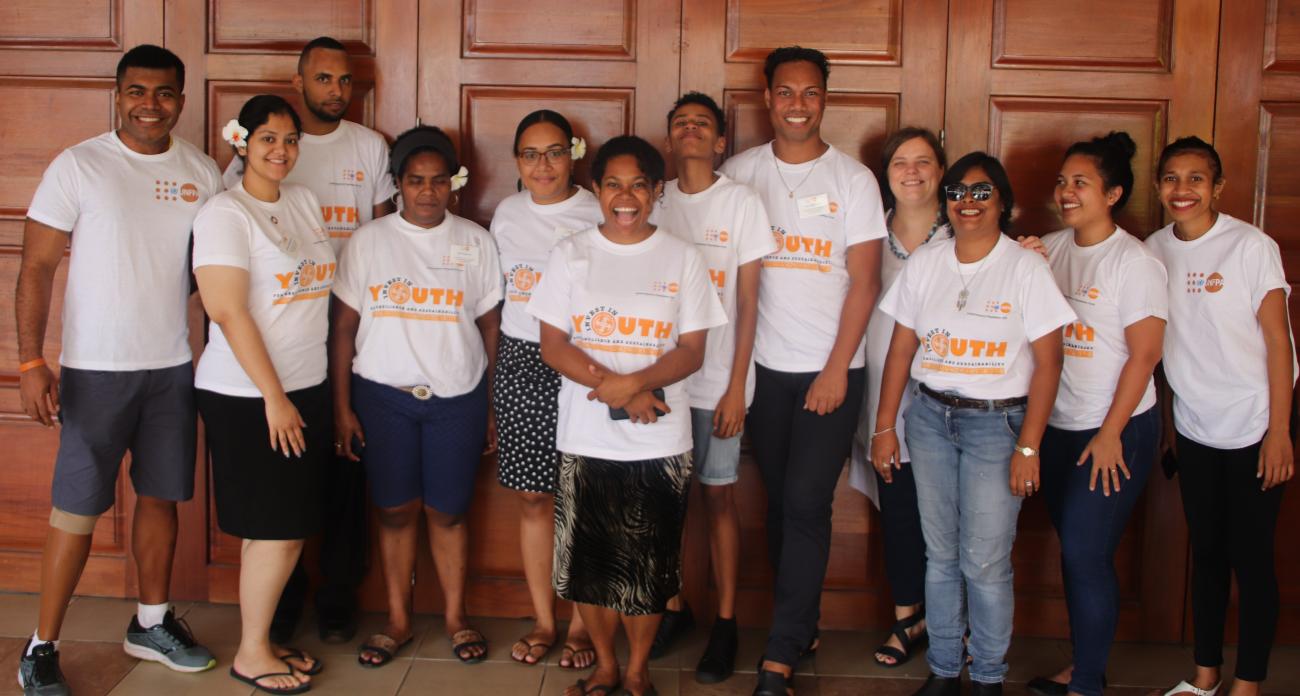Out-of-School Comprehensive Sexuality Education (Guidelines) launched in the Pacific: And now to roll out the curriculum in Samoa and Vanuatu

According to UNFPA, research shows that the majority of adolescents lack the knowledge required to make those decisions responsibly, leaving them vulnerable.
Susana Alofi (not her real name) fell pregnant when she was 16 years old. She was enjoying sports, reading and hanging out with her friends. But no one had told her about life changing decisions on sexual and reproductive health. She thought nothing would happen after ‘fooling around’ with her boyfriend.
According to UNFPA, research shows that the majority of adolescents lack the knowledge required to make those decisions responsibly, leaving them vulnerable to coercion, sexually transmitted infections and unintended pregnancy.
Launching the 2020 International Technical and Programmatic Guidance on Out-of-School Comprehensive Sexuality Education (Guidelines) in December, 2020 was the Prime Minister of Samoa, Hon. Tuilaepa Dr Sailele Malielegaoi, and in attendance from Tuvalu was the Prime Minister of Tuvalu, Hon. Kausea Natano as well as the Hon. Speaker of the Tonga legislative Assembly, Lord Fakafanua and Eminence Cardinal, Soane Patita Mafi from Tonga.
For the first time in the Pacific, two Prime Ministers, several government ministers and high level clergy from across the Pacific joined hands to commit to a programmatic guidance on Comprehensive Sexuality Education, also commonly known as Family Life Education.
UNFPA Pacific, Gender Technical Adviser, Alexandra Robinson, said “With the participation of key political and vital decision makers from across the Pacific, the event was successful in reviving country commitments on comprehensive sexuality education (CSE) and promoting efforts on elimination of violence against women and girls. More specifically, this activity was successful in increasing awareness on the need for CSE for young people and informing national strategies to implement CSE for marginalised and largely out-of-school youth.”
“It is also the first time the UN Populations Fund has a guidance on designing, implementing and monitoring CSE programs for those usually marginalized and not in school,” according to UNFPA Pacific Representative, Dr Jennifer Butler.
An estimated 700 participants at physical locations across 11 countries (Cook Islands, Fiji, Kiribati, PNG, Republic of the Marshall Islands, Samoa, Tuvalu, Solomon Islands, Tokelau, Tonga, and Vanuatu) witnessed the virtual event which was livestreamed on TV and social media platforms.
As part of ongoing support to Pacific Island Countries, UNFPA and its partners are working with relevant Government Ministries and stakeholders to develop or revise several curriculums on Comprehensive Sexuality Education to meet the standards of the 2020 International Technical and Programmatic Guidance on Out-of-School Comprehensive Sexuality Education (Guidelines). Of paramount importance is the contextualisation to address local issues and needs of the target populations.
The curriculum will be rolled out by International Planned Parenthood Federation (IPPF) through their Member Associations such as the Samoa Family Health and Vanuatu Family Health Association. The curriculum has nine components which focus on human rights, sexual health and wellbeing, gender, relationships, communication and decision making, as well as reproductive health.
International Planned Parenthood Federation (IPPF) Programme Officer – Youth and CSE, Jack Martin says “Through the Spotlight support we are going to standardize the training curriculum and post training support activities. Currently there are different agencies conducting different and fragmented aspects of comprehensive sexuality education for out of school young people, with one standard curriculum and one mode of delivery there can be better coordination but importantly consistency in information reaching the target populations.”
“The curriculum will be delivered by facilitators, peer educators and youth leaders. For us the important thing is the volunteers will disseminate information and will refer young people to the SRH services and we make sure our services cater for young people’s needs. Those are the core things,” he said.
“Through the provision of out of school comprehensive sexuality education, IPPF will be working to provide the opportunity for young people to re-evaluate their behaviours and attitudes to shift gender inequitable social norms. This process of learning provides young people with the opportunity to enter into respectful and violence free relationships and partnerships,” said UNFPA’s Alexandra Robinson.
As we look to the roll out of the curriculum in June 2021, we recognise the value of working with partners so young people like Susana Alofi can make informed decisions about sexual and reproductive health issues.


